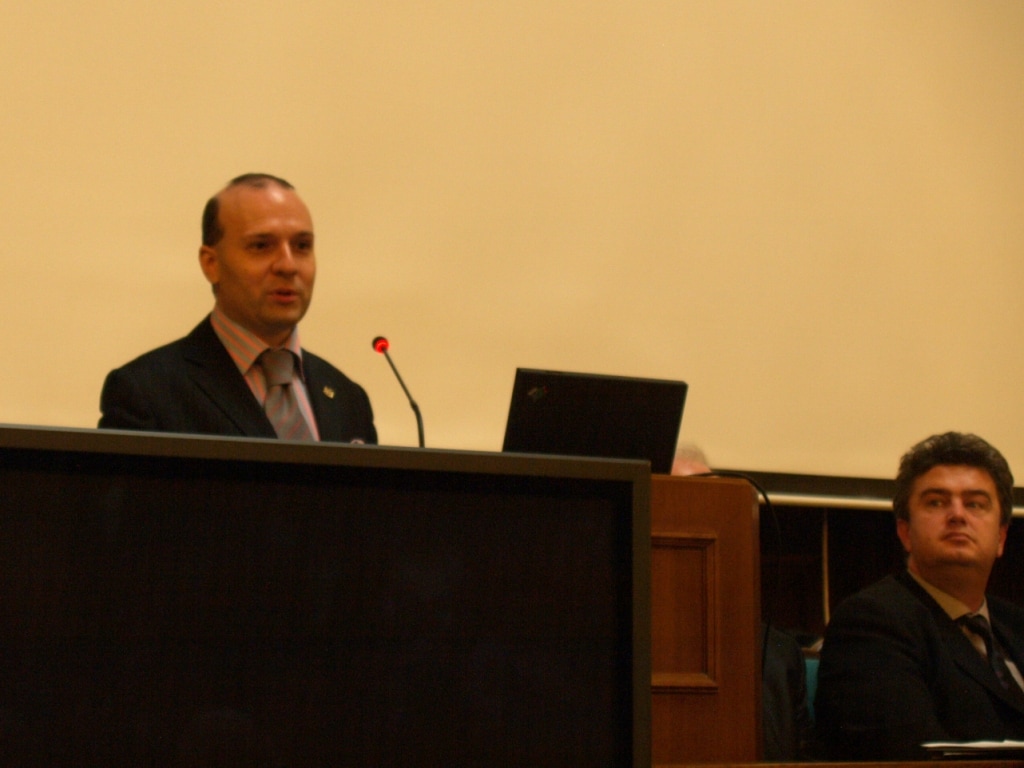
Esteemed Academicians, professor and expert assembly,
Esteemed Ministers,
All protocol observed,
I would like to start by thanking EUROPEAN TOURISM ACADEMY and European Council on Tourism and Trade in particular, for organising such an excellent event and for having invited me to take part in today’s opening of the high level segment.
Climate change it`s threatens our life and natural environment and thus, the foundation of our quality of life.
That is why biodiversity is at the centre of public interest. It is thanks to the Convention on Biological Diversity that we have global commitments to ensure the conservation and sustainable use of biodiversity. It is crucial that this Conference continues the work this week by agreeing to concrete actions to reach ambitious commitments.
But, despite these efforts, biodiversity loss continues at an alarming rate – both in Europe and the rest of the world. Important ecosystems continue to be destroyed. The time has come therefore to re-double our efforts.
The “business as usual” approach has no chance of achieving the target of significantly reducing global biodiversity loss by 2030.
n particular we need to maximise synergies between climate change measures and biodiversity.
The integration of biodiversity into policy areas in developing countries is a challenge and a responsibility for developing countries themselves.
Let me now touch briefly on a number of specific important topics .
Firstly, the protection of the world’s forests is one of the pressing challenges that we have to face.
Deforestation is one of the main drivers of species loss.
Forests are important to welfare in many developing countries. And deforestation is responsible for approximately 20% of global greenhouse gas emissions – more than the entire emissions of the EU.
This simple but clear fact shows that the challenge of deforestation is a global challenge and needs the promotion of a global solution.
If we can manage to find a way to stop deforestation, then there is an opportunity for a real “win-win-win” situation: protecting biodiversity, fighting poverty and making a major contribution to the fight against climate change.
Combating illegal logging and trade in illegally harvested timber products could make a sizeable contribution to addressing the problem of deforestation.
Another significant effort must be to preserve the dynamism and vitality of our maritime regions.
The agreement during this meeting on a process leading to the clear identification of sites that would be eligible for being listed as marine protected areas will be an important milestone in achieving our commitment, to establish a global network of Marine Protected Areas.
Considering the growing evidence of destruction of vulnerable marine ecosystems, it is crucial that we act now in order to ensure the conservation and sustainable use of our marine environment.
Ladies and gentlemen,
We must remember: extinction is forever. We cannot wait until the degradation of ecosystems reaches a point of no return. Scientists are not exaggerating when they refer to the 6th great planetary extinction.
We have to find a way of living in a sustainable harmony with nature. We have a moral obligation to be careful stewards of the planet for future generations.
 RSS Feed
RSS Feed
